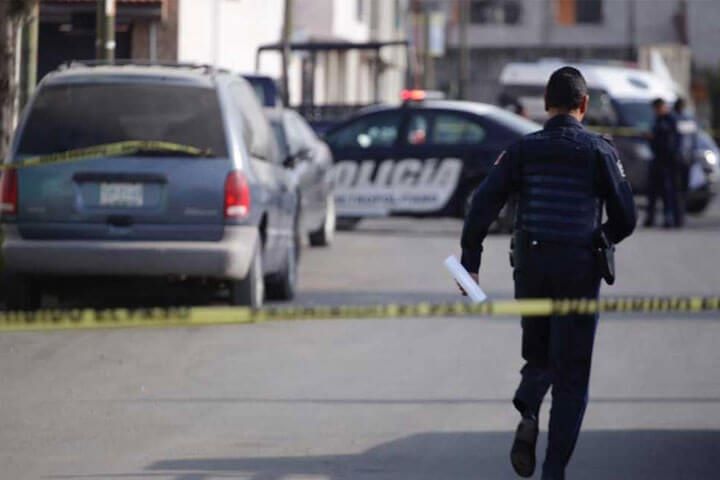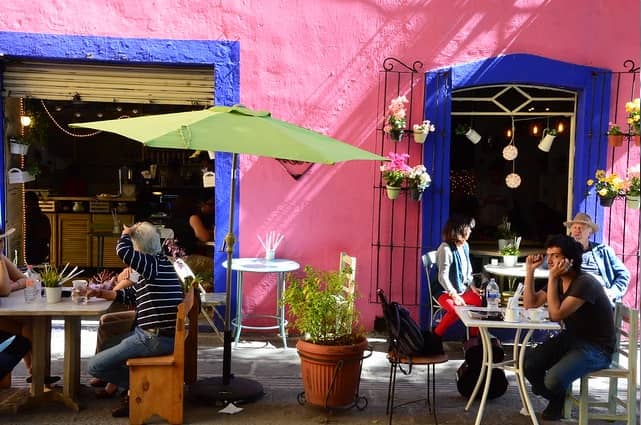Puebla, the country's most insecure city
From September to December, the perception of insecurity shot up in Puebla, making it the most dangerous city in the country to live in, where 9 out of 10 people feel unsafe
From September to December, the perception of insecurity shot up in Puebla, making it the most dangerous city in the country to live in, where 9 out of 10 people feel unsafe, according to the National Institute of Statistics and Geography (Inegi).

This is warned by the National Survey of Urban Public Security (ENSU), in which 92.7 percent of those interviewed admitted to having a high degree of fear of being a victim of crime. The figure is worrying not only because it placed the state capital in first place nationally, but because it is well above the 72.9 percent average reported nationwide.
It also represents an advance of 9.6 percent, compared to the previous measurement of September 2019, when the feeling of insecurity reached only 83.1 percent of the population. Another relevant fact of the survey is that at least 52 percent of the households in the capital, in proportion to those interviewed, admitted to having at least one victim of crime, that is, half of the families in the capital.
The results stand out more when considering that the city council of Puebla, the state congress, and the governor are part of the same political force, without any of the three representations showing results. Near Puebla is Tapachula, Chiapas, which is currently dealing with the arrival and passage of migrants, or Ecatepec, State of Mexico, a place that stands out for its high number of femicides and disappearances of women.
In addition to Uruapan, Michoacán, a city that is struggling with the advance of organized crime cards for the control of the state, or Tlanepantla, a place that stands out for its high number of femicides, homicides, and disappearances of people. In contrast, the cities with the lowest perception of insecurity were: Merida, San Pedro Garza Garcia, San Nicolas de los Garza, Saltillo, Los Cabos, and Puerto Vallarta, with 18.9, 18.9, 31.7, 32.1, 32.7 and 34.2 percent, respectively.
THE GOVERNMENT OF GERMANY ISSUES PUEBLA CRIME TRAVEL ALERT
The Federal Ministry of Foreign Affairs for the Latin American region of the government of Germany included Puebla in the entities in which it does not recommend traveling to foreign tourists since they have testimonies of visitors who have been victims of crime.

"There is a growing number of armed clashes between criminal gangs in various parts of Mexico and more often in international tourist destinations. Travelers have witnessed these conflicts and in some cases have been injured. After a series of violent attacks, police protection has increased in public buses in Mexico City, but the residual risk continues, "says the publication.
In the case of Puebla, the best recommendation is not to travel on land.
It is strongly discouraged to travel to the following regions and cities:
Border region with the United States. The stay there should be limited to the minimum required for entry or exit
State of Tamaulipas
The state of Sinaloa, excluding Mazatlan, there Golden Zone and historic center, by direct arrival and departure by plane and Los Mochis/railway line of "El Chepe"
The state of Colima, with the exception of Manzanillo, arriving by boat or plane.
The state of Guerrero, with the exception of Ixtapa-Zihuatanejo, when traveling by plane and the city of Taxco, provided that arrival and departure are made in daylight.
Special care is advised:
For trips by land
When traveling to the states of Guanajuato, Puebla, and Veracruz
Visits to the districts of Tepito, Doctores, Lagunilla, Venustiano Carranza, Gustavo A. Madero and Iztapalapa of Mexico City
In the text, it adds: the security situation in many parts of Mexico is constantly getting worse.
Violent crimes, as a result of serious, growing and widespread crimes, are common, but there are also more and more robberies, kidnappings, homicides, and acts of revenge related to organized crime in central locations and during the day, but especially at night in the environment.
Clubs, bars, and restaurants
It can also be non-involved damage. Due to the widespread presence of organized crime in Mexico, the security situation in some states is very critical and tense in others.
Throughout Mexico, greater caution is advised. The most common crimes are robberies, robberies, and temporary kidnappings. Police forces or uniformed security personnel or criminals posing as such can, in principle, be involved in criminal offenses. For strangers, travelers should be reluctant to provide personal information.
Violence against women has increased, not least, in tourist regions. Therefore, women should not travel alone, especially at night and in isolated areas. Sexual assaults should be reported immediately to the nearest department of the "Public Prosecutor's Office" (Prosecutor's Office).




